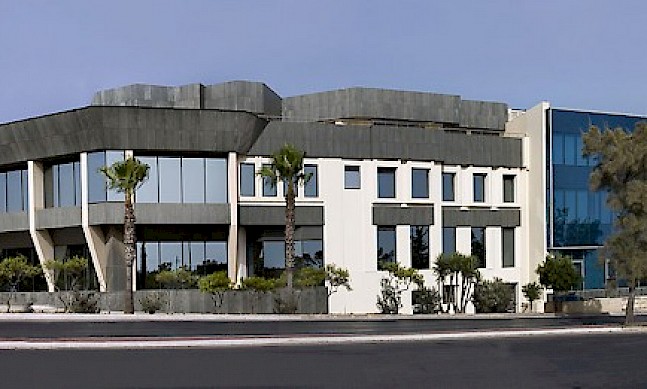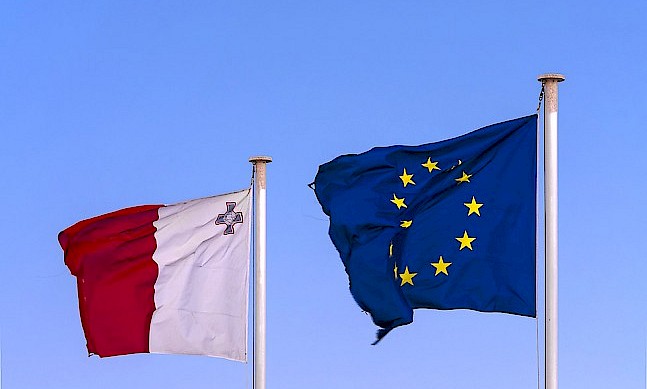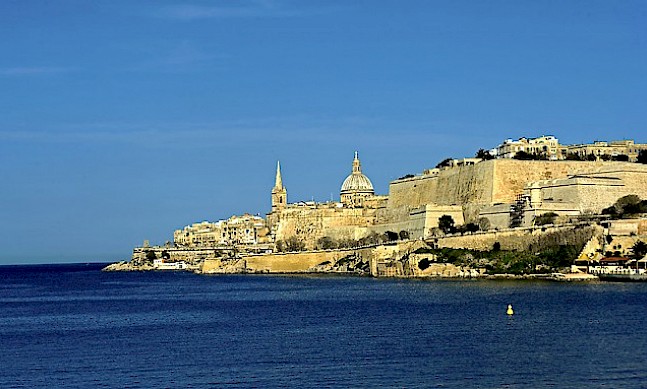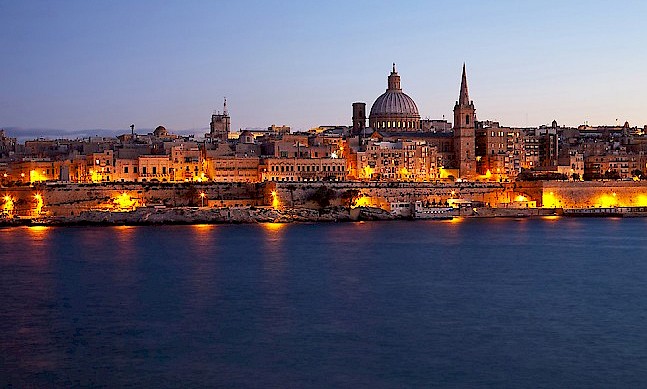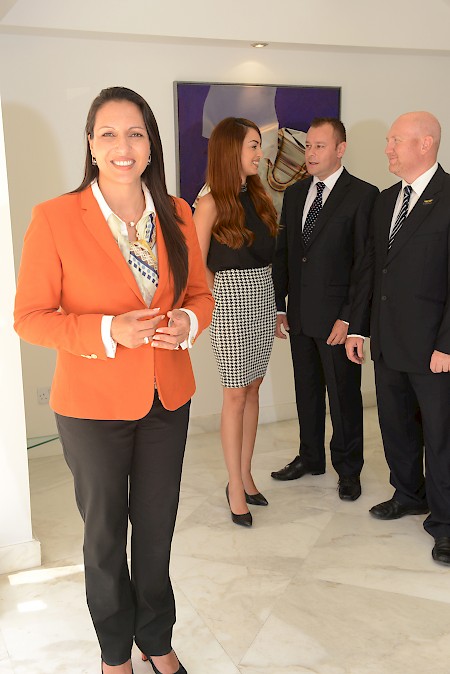
Dr Vanessa Borg has been active in the field of international business management for over two decades. After working to support pre-openings and takeover activities for Corinthia Hotels International around the world, she went on to found her own company, Consultancy & Training Acumen Centre Ltd, in 2007, which spearheads projects within the hospitality, manufacturing, education, tourism, information technology, communications, retail, i-gaming and financial services sectors. Chosen by the Argus Group to head its Maltese operations in December 2013, she now plays a key role in Malta’s insurance and financial services sector. The Report Company met with her to find out more.
The Report Company: What is driving the foreign investment in Malta’s insurance sector?
Vanessa Borg: Malta’s economic growth has exceeded the euro area average for several years because of the robust domestic demands and exports. The neighbouring countries have been more negatively impacted by the downward pressure on rates. Malta’s favourable tax system, complimented by its innovative legislation, stable and consistent regulatory environment, makes it an attractive jurisdiction for financial investments.
Our EU membership guarantees harmonisation with most European markets via EU legislation; hence we are licensed to provide insurance services within EU and EEA member states. Boasting a strong and efficient regulator which is extremely supportive of financial services operators whilst efficiently safeguarding consumer welfare, Malta is deemed a safe business playground for all stakeholders in the market. This injects the necessary investor and consumer confidence that catalyses investment and consumer spending respectively. Prospective foreign investors coming into Malta are supported by clear guidelines that enable business ventures to hit the ground running within sensible timeframes.
We also have passporting benefits and taxation structures that entice high-profile entities to operate from Malta. Re-domiciliation legislation also makes it easy to migrate business between Malta and the EU, the EEA and the OECD countries.
Moreover, Malta provides a talented workforce that provides a platform for multinational companies to set up functions in Malta, which complement their head-office setup whilst cutting down on operational expenses.
In terms of our economic stability, we have exceeded many in the euro area for a number of years. While our neighbouring countries have been more than negatively impacted by recent financial turmoil, Malta’s resilient economy has managed to surmount that, which means we are also being recognised by international investors as an optimal business location.
TRC: What are the opportunities and the challenges for the insurance sector?
VB: Starting off with the opportunities, I would say the low overheads, such as the salaries to talent ratio, are first and foremost. We find that we have a very attractive regulatory framework. Another major plus is the multilingual, talented workforce. Moreover, we enjoy the fruits of a number of international companies introducing best business practices which, over the years, are then embedded into our operational models, shifting our local productivity frontier outwards.
Yet again, we have a number of untapped niches such as aviation and oil and gas, that we can obviously explore further. Although Malta is already a destination for captive insurance, there is significant room for growth in this area too.
In terms of challenges, a major hindrance would be if neighbouring countries were to shift their tax regulations to compete with Malta’s. That would remove a major attraction for international business settling into Malta, resulting in reduced insurance trade. Another possible destabilising factor would be the imposition of ultra-rigid compliance or regulatory requirements for the insurance industry, although this is not foreseeable in the near future.
“Embracing Solvency II is a given. It is not something that we should consider as additional workload; we should on the contrary consider it as peace of mind, and that is the frame of mind we have within the company.”Tweet This
TRC: What are the opportunities and the challenges for the insurance sector?
VB: Starting off with the opportunities, I would say the low overheads, such as the salaries to talent ratio, are first and foremost. We find that we have a very attractive regulatory framework. Another major plus is the multilingual, talented workforce. Moreover, we enjoy the fruits of a number of international companies introducing best business practices which, over the years, are then embedded into our operational models, shifting our local productivity frontier outwards.
Yet again, we have a number of untapped niches such as aviation and oil and gas, that we can obviously explore further. Although Malta is already a destination for captive insurance, there is significant room for growth in this area too.
In terms of challenges, a major hindrance would be if neighbouring countries were to shift their tax regulations to compete with Malta’s. That would remove a major attraction for international business settling into Malta, resulting in reduced insurance trade. Another possible destabilising factor would be the imposition of ultra-rigid compliance or regulatory requirements for the insurance industry, although this is not foreseeable in the near future.
Ultimately, economic challenges normally arise from the international economic environment, mostly deriving from knock-on effects due to low performances of neighbouring countries’ economies, rather than our own. The cascading effect is inevitable, but this holds true for all countries; thus this becomes a non-differentiating factor for prospective foreign investors.
TRC: How would you appraise the work Finance Malta has done in promoting the financial services sector?
VB: Finance Malta should be the starting point for foreign entrepreneurs, as it is very well positioned to guide them through the set-up process, and their wealth of knowledge will ensure that they can tap into financial aid and incentives, as well as other resources.
The number of new business setups that have mushroomed in Malta showcases Finance Malta’s efforts to attract investment and support it thereafter. By further promoting the array of services they offer, they could augment their attractiveness to investment, and become the effective first point of contact for potential entrepreneurs.
“Competitors may copy your product portfolio, your document layouts, your organisational structure, but competitors can never copy the composition of your team. And that is our edge.”Tweet This
TRC: How will the Solvency II directive affect the competitiveness of the Maltese insurance sector?
VB: Embracing Solvency II is a given. It is not something that we should consider as additional workload; we should on the contrary consider it as peace of mind, and that is the frame of mind we have within the company. You may think of it as a common currency, wherein all entities carry the same practices and the same overheads, so we are competing on a level playing field whilst collectively raising the bar for transparency and accountability in the sector.
Thus, by embracing regulatory practices that ensure consistency, we are safeguarding the interests of all stakeholders: our policyholders, clients and our shareholders. That is the way forward. We should be in line with international practices; we should be compliant, consistent and transparent.
TRC: Before joining the Argus Group, the company was known as Fogg Insurance Agencies. How does this previous local track record give Argus in Malta a competitive edge?
VB: When Argus looked into acquiring Fogg, this for us was an opportunity to leverage decades of experience. We were not just acquiring a client database; we were acquiring talent and know-how. The acquisition of Fogg has validated our appetite for further acquisitions in the European sector. This acquisition was later followed by another acquisition, Millennium, further strengthening the Argus portfolio.
TRC: What is the company’s current market position?
VB: We are very much into value and not volume. We do not intend to spark price wars for the sole purpose of attracting volumes. This would be detrimental to the industry and it would affect our own sustainability by inference. Our focus is organic growth, with an emphasis on building the commercial sector. Our strengths and customer-centric attitude offer us the means to pamper our clients. Our motto is “our interest is you.” We are well-positioned to identify the individual, sophisticated needs of our clients and come up with a wider, global portfolio of service offerings that would allow us to cater for those needs.
TRC: What sets you apart from your competition?
VB: First of all, we have niches. For example, we have niches within manufacturing and hospitality, because our products offer flexibility, this makes them far more attractive to these businesses.
Besides having niches within the manufacturing and hospitality industries, our ultimate competitive edge is the cumulative strength of our workforce. We have introduced a number of internal practices to ensure that our employee workforce is fully equipped and able to take on an entrepreneurial role when attracting new businesses. Our elite family-friendly measures, which may be considered as a first in the insurance industry, instil in our employees a stewardship drive that triggers higher performance levels.
We are one of the very few insurance companies that operates its own training academy, and we have a high order of training programmes being delivered constantly.
We have introduced a number of HR practices that have buoyed a very high level of employee satisfaction, and our employee morale is very high. Competitors may copy your product portfolio, your document layouts, your organisational structure, but competitors can never copy the composition of your team. And that is our edge. We want to be referred to as an employer of choice, but we don’t want that to just be a catchphrase; we want people to feel and breathe the HR practices that are being introduced.
Moreover, being part of the Argus Group allows us to boast with our business partners that we form part of the largest Bermuda-owned insurance provider that is listed on the Bermuda Stock Exchange. In addition, we are also able to leverage its strong international network to offer market-leading insurance solutions both to the local market together and our business partners.
TRC: You recently moved to a new office in Malta. What are the next expansions in the pipeline?
VB: Whilst aiming to capitalise on the Group’s wealth of assets, brand identity and competencies, we also plan to expand our product portfolio to widen our market reach, thus maintaining a client base that is strongly affiliated to the company.
TRC: As chief executive of the firm, what you want to achieve in the short to medium term?
VB: In the medium term, we want to achieve our targets, but also more importantly, we want to become a strong contributor to the insurance industry in Malta.




